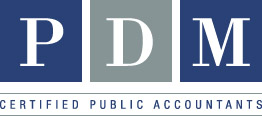As a successful investor, you know that sometimes you must take a loss. But what happens when a company you hold shares in goes bankrupt? Are you able to take a loss from your basis of shares?
The short answer is no. To understand why, you must understand the nature of “debt discharge income” in a single taxpayer bankruptcy, and how it differs from an S corporation bankruptcy.
“Debt Discharge Income” in Taxpayer Bankruptcy
In a bankruptcy hearing, a taxpayer has taxable income when he or she succeeds in being forgiven a portion of the amount originally due on the debt. This is sometimes called debt discharge income. Thus if a taxpayer owes someone $100,000 and succeeds in settling the debt for only $60,000, he would have a taxable income of $40,000.
Tax Breaks In a Corporate Bankruptcy
However, it is not exactly the same in a corporate bankruptcy. There exists a special tax break under which debt discharge income from a bankruptcy does not have to be classified as debt discharge income. The S corporation can instead apply the same amount of the debt discharge income to reduce certain “tax attributes” in the following order:
- Net operating loss for the year of the discharge
- Net operating loss carryovers from previous years
- Credits
- Capital loss carryovers
- Bases of assets
Not Deductable for the Shareholder
Income so excluded by an S corporation is of course not passed through to the shareholder as taxable income, and therefore the shareholder’s basis in his S corporation shares is not increased by the excluded income.
So, as a shareholder, you cannot deduct any suspended losses as a result of excluded debt discharge income.
Sometimes You May Deduct Suspended Losses in the Future
There are situations in which you may still be able to take advantage of that suspended loss. If the company that went bankrupt remains an S Corporation after the bankruptcy and you increase your basis in stock or debt of the S Corporation, you may be able to deduct the suspended losses in the future.
Do you have suspended losses as a shareholder in a bankrupt company? To take the best tax advantage, it’s wise to seek professional guidance. PDM’s tax experts can help advise you on the best course of action. Contact us; with our years of technical experience, advanced training, and cutting edge technology, we are your financial partner.


